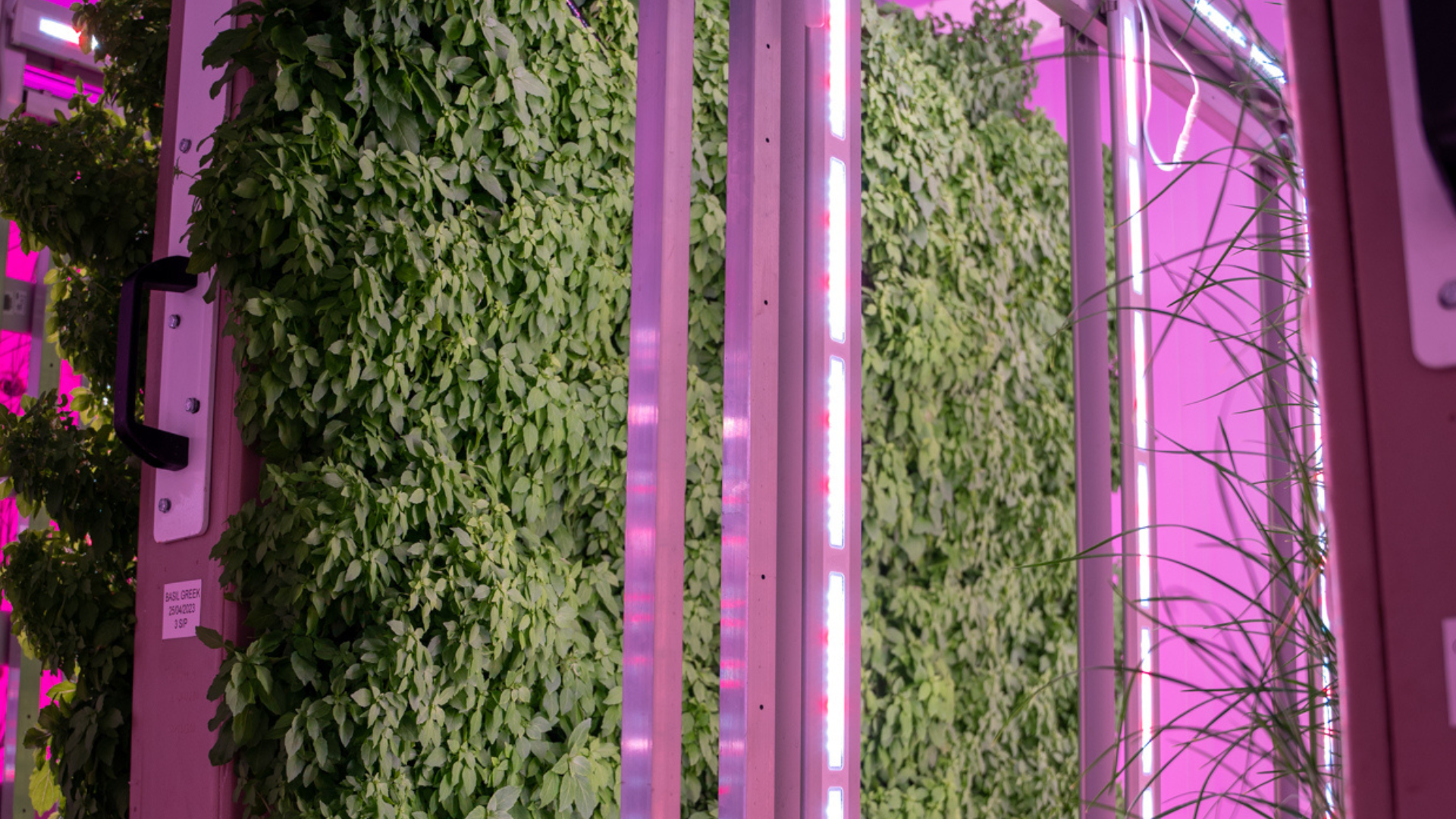Controlled Environment Agriculture (CEA) is more than just a method of growing food, it’s a platform for innovation, research, and urban resilience. By providing precise control over environmental conditions, CEA empowers cities, researchers, and communities to tackle the pressing challenges of today and tomorrow. From reducing supply chain dependencies to accelerating scientific breakthroughs, the potential of CEA is vast.
Urban Resilience: Local, Year-Round Production
Cities face growing pressure to secure reliable food supplies while reducing environmental impact. CEA enables urban agriculture to thrive, providing fresh, locally grown produce year-round. By shortening supply chains and reducing reliance on distant farms, CEA strengthens food security, decreases carbon footprints, and builds resilient urban ecosystems.
Accelerating Research and Innovation
Precision and control are the hallmarks of CEA, making it a powerful tool for academic and industrial research. Scientists can manipulate light, temperature, humidity, and nutrients to test hypotheses, accelerate plant breeding, and develop new cultivation techniques faster than ever before. Advanced sensors and automated data collection enable precision farming and data-driven experimentation, providing researchers with valuable real-time insights to optimise growth conditions, improve reproducibility, and enhance discovery. This level of control opens doors for breakthroughs in crop science, pharmaceuticals, and sustainable production methods.
Sustainable Innovation: Maximising Resources, Minimising Waste
CEA systems optimise water and nutrient use, significantly reducing waste compared to traditional farming methods. Vertical farms, growth chambers, and modular grow labs can deliver higher yields on smaller footprints, making agriculture more efficient and environmentally responsible. For communities and researchers alike, this means achieving ambitious goals without compromising sustainability.
Beyond Technology: A Platform for Collaboration
While CEA relies on advanced technology, its true power lies in the opportunities it creates. Researchers, start-ups, and cities can experiment, collaborate, and innovate in ways that complement and enhance traditional farming and food supply systems. Rather than replacing conventional agriculture, CEA supports it, offering controlled, repeatable environments to test new crops, develop climate-resilient varieties, and strengthen supply chain resilience. Together, these approaches can create a more adaptable and secure agricultural future.
Controlled Environment Agriculture is transforming the way we think about growing food, conducting research, and building resilient communities. It’s a technology, yes, but it’s also a tool for innovation, sustainability, and collaboration.
Get in Touch